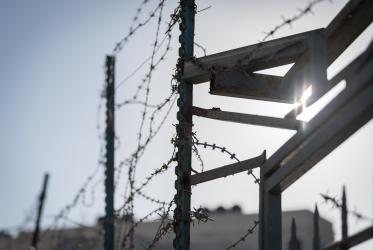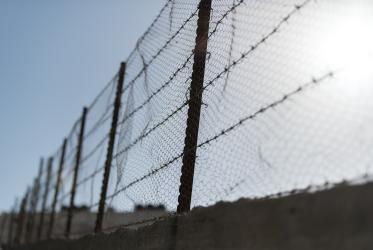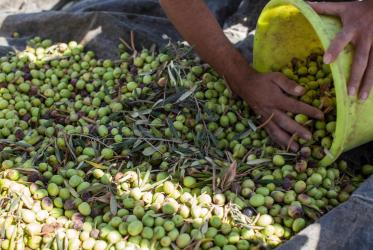Displaying 1 - 20 of 170
WCC, WHO commemorate 50 years of collaboration
04 April 2024
Compendium of Promising Practices of African Faith Community Interventions against Paediatric and Adolescent HIV
Executive Summary
23 March 2024
Women and children in Gaza bearing brunt of ongoing war
16 January 2024
Violations of human rights escalate in Masafer Yatta, Jerusalem
30 November 2023
Violence against Palestinians is rising in the West Bank
16 November 2023
A Guide for Churches on the Prevention of Obstetric Fistula
26 October 2023
Philippines delegation meets with WCC to discuss human rights
19 October 2023
Recommended Practices to Combat HIV-Related Stigma
A Guidebook for Local Faith Communities
05 October 2023
Faith Sector Implementation of the Global AIDS Strategy
05 October 2023

















